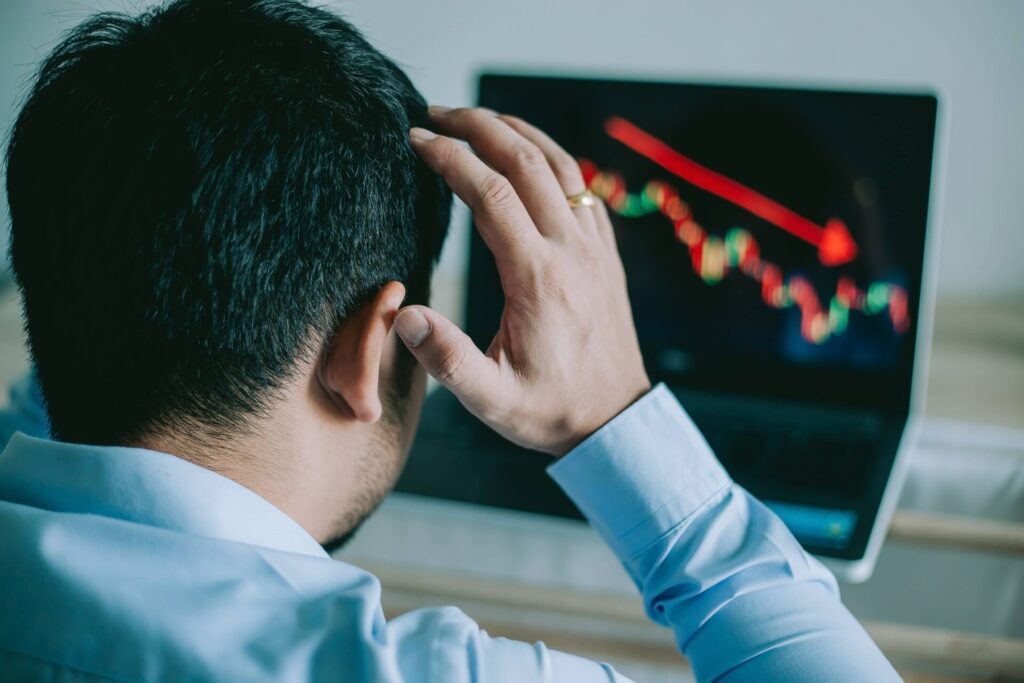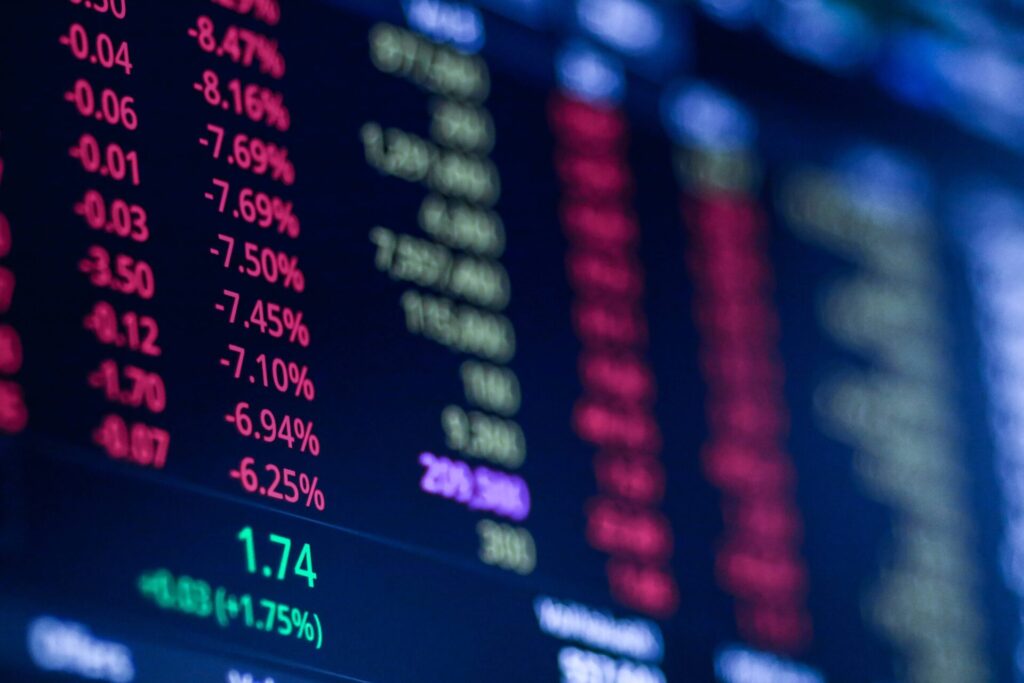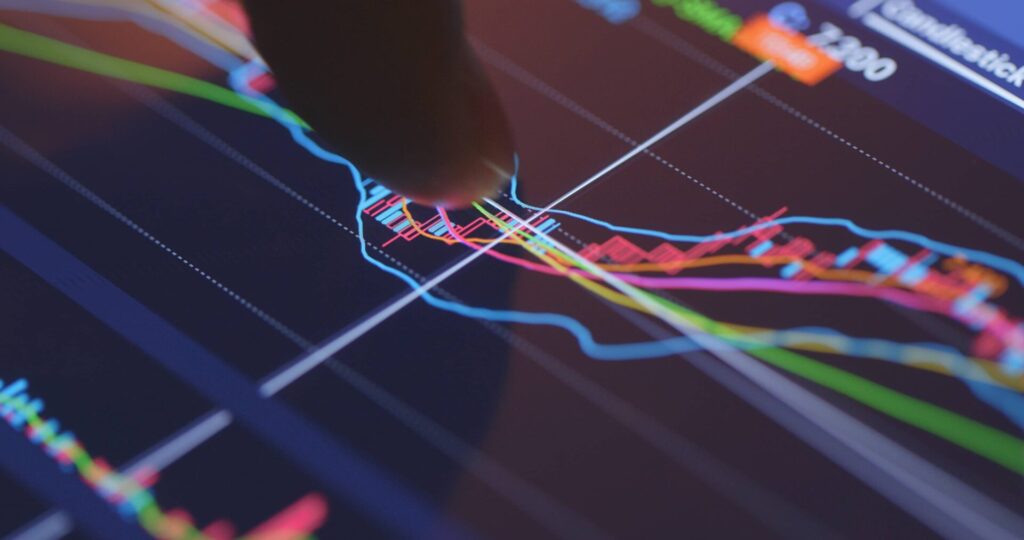A. Definition of a stock market crash
Have you ever heard the term “stock market crash” and wondered what it means? Well, buckle up because we’re about to dive into the exciting world of stocks, investments, and financial markets.
First off, let’s define what a stock market crash is. Simply put, a stock market crash is a sudden and rapid decrease in the value of stocks, leading to widespread panic and selling. It’s like a massive discount sale on stocks, but not in a good way.
B. Importance of understanding when the stock market will crash
So why is it important to understand when the stock market will crash? Well, imagine you have all your hard-earned money invested in the stock market, and one day, boom! The market crashes and your investments are worth a fraction of what they were the day before. That’s why it’s essential to know the warning signs and be prepared for potential crashes.
C. Purpose of the article
That brings us to the purpose of this article. Our goal is to educate and inform you about the stock market crashes – what causes them, what the warning signs are, and how to protect your investments during a crash. We’ll also touch on the aftermath of a crash and the future of the stock market. By the end of this article, you’ll be a stock market crash pro!
Historical stock market crashes

Alright, let’s dive into some history! Who doesn’t love a good history lesson, right? And what better way to understand the stock market than by looking back at past crashes? So, grab some popcorn, sit back, and get ready for a wild ride!
A. Brief overview of previous stock market crashes
Let’s start with the most famous one – the Great Depression. It all started in 1929 when the stock market crashed and led to a decade-long economic crisis. But that’s not the only one! Fast forward to 1987, the stock market experienced another significant crash known as Black Monday, where the market lost nearly a quarter of its value in a single day. And let’s not forget the Dot-com bubble in the late 90s, where the stock market experienced rapid growth, only to crash shortly after.
B. Causes and consequences of previous crashes
So, what causes these crashes? Well, there’s no one answer, but they’re usually a result of a combination of factors such as economic recessions, overvaluation of stocks, political events, and market sentiment. And the consequences? Well, it’s not pretty. Stock market crashes lead to widespread panic, job losses, and economic turmoil. It can take years for the market to recover, and for some people, the impact can last a lifetime.
C. Lessons learned from past crashes
But, as the saying goes, history repeats itself. By understanding the causes and consequences of previous stock market crashes, we can learn valuable lessons and be better prepared for the future. For example, we learned that diversifying our investments and having an emergency fund can help protect us during a crash. We also learned the importance of staying informed and avoiding impulsive decisions.
So, there you have it, a brief overview of some of the most significant stock market crashes in history. By understanding what happened in the past, we can better prepare for the future and make informed investment decisions. Let’s keep this history lesson in mind as we continue our journey in the exciting world of stocks!
Read More: Maximize Your Investment Portfolio with Low-Risk Options in 2023
Factors that can trigger a stock market crash
A. Economic indicators
Let’s start with the big guns – economic indicators. These are indicators that show the state of the economy, and when they start to go south, it can mean trouble for the stock market. For example, a decrease in consumer spending, a rise in unemployment, or a decrease in economic growth can all signal a potential stock market crash. It’s like a chain reaction – when the economy slows down, the stock market follows.
B. Political events
Politics can also play a significant role in the stock market. Surprising election results, changes in government policies, and geopolitical tensions can all impact the stock market. Just think of the recent events surrounding the US-China trade war and how it impacted the stock market. Political events can cause uncertainty, leading to a decrease in stock prices.
C. Natural disasters and pandemics
Nature can also have a significant impact on the stock market. Natural disasters such as hurricanes, earthquakes, and wildfires can disrupt businesses and cause widespread damage. And let’s not forget about pandemics like COVID-19, which can have a significant impact on the global economy and the stock market. These events can cause a decrease in consumer spending, a rise in unemployment, and a decrease in economic growth, all of which can trigger a stock market crash.
D. Market sentiment
Lastly, let’s talk about market sentiment. This refers to the overall attitude and feelings of investors towards the stock market. When investors are optimistic and confident, the stock market tends to rise, and when they are pessimistic and fearful, the stock market tends to fall. Market sentiment can be impacted by various factors such as economic indicators, political events, and natural disasters. It’s like a self-fulfilling prophecy – when investors start selling, it can cause the stock market to crash.
So there you have it, the factors that can trigger a stock market crash. It’s like a recipe for disaster, but instead of a delicious meal, it’s a financial crisis. By understanding these factors, we can better prepare for a potential crash and make informed investment decisions. Stay tuned for more exciting adventures in the world of stocks!
Read More: Maximize Your Money: Top 9 Investment Options for $100k in 2023
Warning signs of an upcoming crash

Ladies and Gentlemen, it’s time to sharpen your detective skills! We’re now on the lookout for warning signs of an upcoming stock market crash. It’s like playing Clue, but instead of finding the murderer, you’re trying to predict the next market crisis. Ready to get started?
A. Market indicators
One of the best ways to predict a stock market crash is by paying attention to market indicators. These are data points that can signal a change in market conditions. For example, a decrease in consumer spending, a rise in unemployment, or a decrease in economic growth can all signal a potential stock market crash. It’s like a canary in a coal mine – when the economy starts to slow down, it’s time to pay attention.
B. Volatility in stock prices
Another warning sign of a potential stock market crash is increased volatility in stock prices. This refers to sudden, significant movements in stock prices, either up or down. When the stock market becomes more volatile, it means that investors are becoming more uncertain and nervous, which can lead to a decrease in stock prices. It’s like riding a rollercoaster – when the ups and downs become more extreme, it’s time to hold on tight.
C. Overvaluation of stocks
Overvaluation of stocks is another warning sign of a potential stock market crash. This refers to a situation where stock prices are higher than their intrinsic value or the actual value of the company. When stocks are overvalued, it means that investors are paying more for the stock than it’s worth, which can lead to a decrease in stock prices. It’s like a bubble – when the price becomes too high, it’s likely to burst.
D. Unusual market behavior
Finally, unusual market behavior can also signal a potential stock market crash. This refers to any behavior that is not typical in the stock market, such as a sudden increase in insider selling or a decrease in volume. When market behavior becomes unusual, it means that something is not right, and it can indicate a potential stock market crash. It’s like an alarm bell ringing – when things start to go wrong, it’s time to pay attention.
How to protect your investments during a stock market crash
Alright folks, it’s time to talk about the big question – what do you do when the stock market crashes? Don’t worry; we’ve got you covered. Here are some tips on how to protect your investments during a market crisis.
A. Diversifying investments
The first tip is to diversify your investments. This means spreading your money across different types of investments, such as stocks, bonds, real estate, and commodities. By diversifying, you can reduce your risk and avoid having all your eggs in one basket. It’s like playing a game of chess – by having different pieces on the board, you increase your chances of winning.
B. Having an emergency fund
The second tip is to have an emergency fund. This is a separate account that you can use in case of an unexpected event, such as a job loss or a medical emergency. By having an emergency fund, you can avoid having to sell your investments during a market downturn, which can lead to even more considerable losses. It’s like having a life raft in case of a storm – you want to be prepared for the worst.
C. Staying informed and avoiding impulsive decisions
The third tip is to stay informed and avoid impulsive decisions. During a market crisis, it’s important to avoid making decisions based on emotions, such as fear or greed. Instead, stay informed about market conditions and make decisions based on facts and data. It’s like playing poker – you want to keep a cool head and make calculated moves.
D. Seeking professional advice
The final tip is to seek professional advice. If you’re feeling overwhelmed or unsure about what to do during a market crisis, it’s a good idea to seek the advice of a financial advisor. A financial advisor can help you understand market conditions and make informed investment decisions. It’s like having a coach on your team – they can help you make the best plays.
Read More: The Million Dollar Question: How to Invest Your Million in Today’s Market
The role of central banks and governments during a stock market crash

A. Impact of monetary policy on stock prices
The first thing to understand is the impact of monetary policy on stock prices. Central banks, such as the Federal Reserve, can influence stock prices by changing interest rates, which can impact borrowing costs and consumer spending. For example, if the Federal Reserve raises interest rates, it can make it more expensive for consumers to borrow money, which can slow down the economy and lead to a decrease in stock prices. On the other hand, if the Federal Reserve lowers interest rates, it can make it easier for consumers to borrow money, which can boost the economy and lead to an increase in stock prices.
B. Government interventions and their effects
The second thing to understand is the role of government interventions during a stock market crash. Governments can intervene in the market to stabilize prices and prevent a further decline. For example, during the 2008 financial crisis, the U.S. government intervened by providing bailouts to banks and other financial institutions, which helped to stabilize the market and prevent a complete collapse. However, government interventions can also have unintended consequences, such as creating moral hazard, where institutions take excessive risks knowing that they will be rescued if things go wrong.
C. Historical examples of central bank and government actions during crashes
Finally, it’s essential to understand the historical examples of the central bank and government actions during stock market crashes. One notable example is the 1929 stock market crash, which was followed by the Great Depression. During this time, the Federal Reserve did not take action to stabilize the market, which many economists believe contributed to the severity of the downturn. On the other hand, during the 2008 financial crisis, the Federal Reserve and the U.S. government took action to stabilize the market, which helped to prevent a complete collapse. These examples show the importance of central bank and government actions during a stock market crash and the potential consequences of inaction.
Read More: Best Short-term Investments with High Returns for 2023
Different types of stock market crashes
A. Bear market vs. crash
First, let’s start with the difference between a bear market and a crash. A bear market refers to a prolonged period of declining stock prices, usually lasting for several months. On the other hand, a stock market crash refers to a rapid and steep decline in stock prices over a short period of time, usually a few days to a week. It’s important to note that a bear market can lead to a crash, but not all crashes happen during a bear market.
B. Black swan events and their impact
Next, let’s talk about black swan events and their impact on the stock market. A black swan event refers to a rare and unexpected event that has a significant impact on the market. Examples of black swan events include the 9/11 terrorist attacks, the 2008 financial crisis, and the COVID-19 pandemic. These events can cause widespread panic and a rapid sell-off of stocks, leading to a crash.
C. Flash crashes
Another type of crash to consider is a flash crash. A flash crash refers to a sudden and rapid decline in stock prices, usually caused by technical malfunctions or algorithmic trading. Flash crashes are often short-lived but can cause significant losses for investors.
D. Comparison of different types of crashes
Finally, let’s compare and contrast the different types of crashes. Bear markets are characterized by a prolonged period of declining stock prices, while crashes are characterized by a rapid and steep decline in stock prices. Black swan events can cause widespread panic and a rapid sell-off of stocks, leading to a crash. Flash crashes are often short-lived but can cause significant losses for investors. It’s essential to understand the different types of crashes to be prepared and make informed investment decisions.
The aftermath of a stock market crash

A. Short-term and long-term effects
First, let’s talk about the short-term and long-term effects of a stock market crash. In the short term, a stock market crash can cause widespread panic and a rapid sell-off of stocks, leading to significant losses for investors. In the long term, a crash can have a lasting impact on the economy, leading to decreased consumer spending and business investment.
B. Recovery of the stock market
Next, let’s talk about the recovery of the stock market. After a crash, the stock market will eventually start to recover, but the timeline for recovery can vary. Some stock markets recover quickly, while others can take several years to return to pre-crash levels.
C. Historical examples of stock market recoveries
Let’s look at some historical examples of stock market recoveries. After the 2008 financial crisis, the stock market took several years to fully recover. However, the stock market recovered much more quickly after the dot-com bubble of the late 1990s and early 2000s.
D. Factors that influence recovery time
Finally, let’s talk about the factors that influence recovery time after a crash. The size and duration of the crash, the state of the economy, and government policies can all play a role in the recovery time of the stock market. Additionally, market sentiment and investor confidence can also influence the recovery of the stock market.
The future of the stock market and the potential for future crashes
A. Emerging trends and technologies
First, let’s talk about emerging trends and technologies that could potentially impact the stock market. With the rise of new technologies like AI, blockchain, and the Internet of Things, the stock market could be impacted in new and unexpected ways.
B. Predictions for the future of the stock market
Now talk about predictions for the future of the stock market. While it’s impossible to predict the future with certainty, some experts predict that the stock market will continue to grow in the coming years. However, there’s always a chance of a future crash, so it’s essential to stay informed and monitor the market closely.
C. Importance of continued monitoring and adaptation
Continued monitoring and adaptation are crucial for investors looking to protect their investments and prepare for potential crashes. With new trends and technologies emerging all the time, it’s essential to stay informed and be ready to adapt to changes in the market.
D. Mitigating the risks of future crashes
Diversifying your investments and having an emergency fund can help protect your investments in case of a future crash. Additionally, seeking professional advice and staying informed can also help reduce the risks associated with investing in the stock market.
A Look Back at the Key Points of Stock Market Crashes: A Conclusion
A. Summary of key points
We’ve discussed the definition of a stock market crash, the importance of understanding when the stock market will crash, and the purpose of the article. We’ve also gone over historical stock market crashes, the factors that can trigger a crash, warning signs of an upcoming crash, how to protect your investments during a crash, the role of central banks and governments during a crash, different types of stock market crashes, the aftermath of a crash, and the future of the stock market and potential for future crashes.
B. Final thoughts on the stock market and its future
Overall, the stock market is a complex and ever-changing entity that can be difficult to predict. However, by staying informed and being prepared, you can help reduce the risks associated with investing in the stock market. It’s important to remember that investing in the stock market involves taking risks, and there’s always a chance of a crash. However, by being informed and prepared, you can help protect your investments and potentially even profit from a crash.
C. Emphasizing the importance of informed investment decisions and preparedness
In conclusion, the key to success in the stock market is informed investment decisions and preparedness. By staying informed and being prepared, you can help reduce the risks associated with investing in the stock market and potentially even profit from a crash. So remember, always do your research, stay informed, and be prepared!
And that’s a wrap, folks! We hope you’ve enjoyed this article and that it’s given you a better understanding of when the stock market will crash. Good luck, and happy investing!
FAQs
A bear market is a period of declining stock prices where the market loses more than 20% of its value. A crash is a sudden, sharp drop in stock prices over a short period of time. While a bear market can eventually lead to a crash, they are different events with different characteristics.
Yes, it is possible to profit from a stock market crash. Some investors choose to take advantage of the falling stock prices by buying stocks at a lower price, with the hope that the prices will eventually recover. However, this is a high-risk strategy and requires careful consideration and informed investment decisions.
The recovery time of the stock market after a crash can vary widely depending on a number of factors, including the severity of the crash, the state of the economy, and government interventions. Some historical stock market crashes have taken several years to recover, while others have recovered much more quickly.
The government can take actions to try and prevent a stock market crash or mitigate its effects, but it is not possible for them to completely prevent a crash from happening. The stock market is complex and influenced by a wide range of factors, many of which are outside of the government’s control.
There are several steps you can take to protect your investments during a stock market crash, including diversifying your investments, having an emergency fund, staying informed and avoiding impulsive decisions, and seeking professional advice. By taking these steps, you can help reduce your risk and potentially even profit from a crash.
